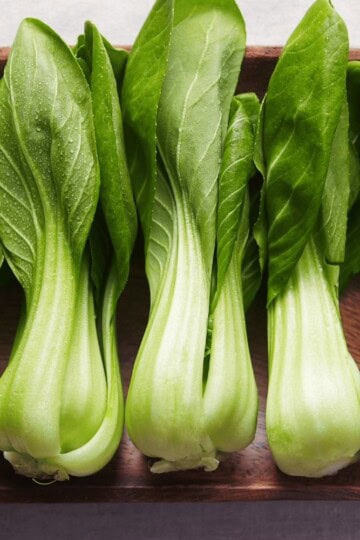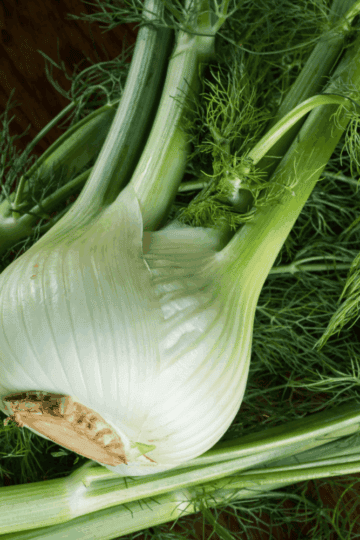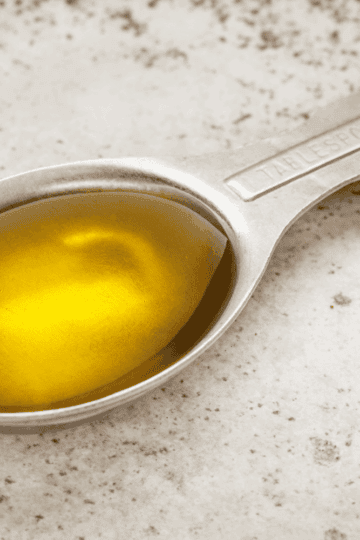When you think of Turkish cuisine, your mind probably goes straight to kebabs, meat koftas or yogurt-based sauces. While it's true that Turkish food has a deep connection with grilled meats and dairy, there's a whole other side to this ancient culinary tradition that remains underappreciated: the plant-based side!

In fact, due to the country's rich agricultural heritage and the influence of the Ottoman Empire's diverse cultures, many traditional Turkish dishes are accidentally vegan.
Without any need for modern substitutes or meat analogs, these dishes rely on vegetables, legumes, grains, olive oil, and spices to deliver bold flavors and satisfying textures.
In this article, we'll explore Traditional Turkish Dishes You Didn't Know Were Vegan - proving that Turkish cuisine has been plant-forward long before veganism became a global trend.
Why Turkish Cuisine Is a Hidden Gem for Vegans
Turkey's culinary foundation is built on the "zeytinyağlı" (olive oil-based) tradition-dishes cooked in olive oil and typically served cold. These meals are not only light and healthy but also free from animal products. This tradition dates back to the Aegean and Mediterranean coasts where olive oil is the primary cooking fat, rather than butter or ghee.
Also, due to the country's deep-rooted love for vegetables, legumes, and grains, you'll find that many recipes are inherently vegan, without needing any substitutions.
I've witnessed this first hand when travelling there so I have a long list of dishes you can find there if travelling as a vegan. Some are popular in restaurants some more in home cooking. Let's have a look at what they are!
Traditional Turkish Dishes That Are Vegan
1. Simit - Sesame-Crusted Bread Ring

A beloved Turkish street snack, simit is a circular bread encrusted with sesame seeds. Crunchy on the outside, soft and chewy on the inside, it's often sold by vendors pushing red carts on city streets. It's a staple of Turkish breakfasts and a popular on-the-go snack, often enjoyed with tea or sliced cucumbers and tomatoes!
It's made from flour, yeast, water, and sesame seeds - it's naturally free from eggs and dairy.
2. Misir - Boiled or Grilled Corn on the Cob

Whether you're wandering through Istanbul's Sultanahmet Square or along the beaches of Antalya, you'll likely stumble upon vendors selling hot, golden corn. It can be boiled for a juicy bite or grilled for a smoky, slightly charred flavor. Vendors sprinkle it with salt and serve it hot, making it an ideal, satisfying street food.
It's just corn, salt, and heat. Unless butter is specifically requested, misir is one of the simplest and healthiest vegan street snacks around.
3. Kestane - Roasted Chestnuts

Kestane is synonymous with winter in Turkey. Vendors roast chestnuts over open flames, filling the air with a sweet, nutty aroma that draws people in. The warm, slightly sweet taste and soft texture of kestane make it a beloved seasonal treat, perfect for snacking while walking through snow-dusted Turkish streets.
Roasted chestnuts are simply chestnuts roasted over heat - no additives or animal products involved.
4. Gözleme - Stuffed Flatbread

Gözleme is a traditional Anatolian flatbread that's rolled out thin, filled, folded, and cooked on a hot griddle.
Fillings range from savory to slightly sweet. Vegan options include mashed potatoes with spices, sauteed spinach with onions, zucchini, mushrooms, or fresh herbs.
It's a staple at Turkish breakfast spots, markets, and home kitchens.
The dough is typically made with just flour, water, and salt. Choose plant-based fillings and you've got a satisfying vegan meal.
5. Çiğ Köfte - Spicy Bulgur Balls

Originally made with raw meat, this dish has evolved significantly. Due to health regulations, the version served in most restaurants today is entirely vegan. You can find street vendors serving this too.
The mix includes fine bulgur, tomato paste, crushed red pepper, pomegranate molasses, and spices, kneaded until the texture is smooth and sticky. It's served wrapped in lettuce leaves with lemon juice or inside flatbread.
6. Patlıcan Ezmesi - Aubergine Dip
This smoky eggplant dip is often confused with baba ghanoush. In Turkey, it's typically made with grilled eggplant, garlic, lemon juice, and olive oil. Some regions add tahini, making it even creamier. Served cold, it pairs well with fresh bread or other meze.
7. Imam Bayıldı - "The Imam Fainted"
A beautifully cooked eggplant dish stuffed with tomatoes, onions, and garlic, simmered in olive oil. It's a cold, olive-oil dish steeped in flavor and legend - supposedly so delicious that it made an imam faint.
8. Zeytinyağlı Yaprak Sarma (Stuffed Grape Leaves)

One of the most iconic dishes in Turkish cuisine, yaprak sarma consists of vine leaves rolled around a fragrant mixture of rice, pine nuts, currants, and herbs like mint and dill.
Unlike the meat-stuffed version, this olive oil-based variety is traditionally vegan and served cold with a slice of lemon. It's a staple at Turkish family gatherings and meze platters.
9. Mercimek Köftesi (Lentil Patties)

These red lentil and bulgur patties are a common snack or appetizer across Turkey. They're flavored with tomato paste, green onions, parsley, and a variety of spices.
Mercimek köftesi is shaped by hand and usually served wrapped in lettuce leaves or with a squeeze of lemon.
10. Vegetable Dolma
Zucchini, bell peppers, eggplants, and tomatoes are hollowed out and stuffed with a herbed rice mixture. Cooked slowly in olive oil, they're tender, aromatic, and flavorful.
11. Mercimek Çorbası - Red Lentil Soup

One of Turkey's most beloved soups, made from red lentils blended with onions, garlic, carrots, and spices. Often finished with a squeeze of lemon.
12. Barbunya Pilaki (Stewed Borlotti Beans)
A classic in Turkish homes, barbunya pilaki features borlotti (or cranberry) beans cooked in a tomato and olive oil sauce with onions, carrots, and sometimes potatoes.
Served cold or at room temperature with a slice of lemon, it's a light yet satisfying dish often enjoyed as part of a meze spread.
13. Kısır (Turkish Bulgur Salad)
Kısır is the Turkish answer to tabbouleh-a spicy, tangy bulgur wheat salad made with tomato paste, parsley, scallions, mint, and pomegranate molasses.
It's usually served cold and makes for a great picnic or party dish.
14. Piyaz (White Bean Salad)
Traditionally served alongside grilled meats, piyaz is a standalone delight for vegans. Made from white beans, onions, parsley, and sumac, it's tossed in olive oil and lemon juice. Some regional versions add tahini for extra creaminess.
15. Fasulye Pilaki (Braised White Beans)
Similar to barbunya pilaki, this dish uses white beans stewed in olive oil with onions, tomatoes, and carrots. The result is a rich, slightly sweet, and aromatic dish that's best enjoyed chilled.
Why it's vegan: Traditional recipe is free from animal products.
16. Domatesli Pilav (Tomato Rice Pilaf)
Simple yet incredibly satisfying, this pilaf is made with rice, tomatoes, and olive oil, simmered together until fluffy and fragrant. It often accompanies vegetable stews or meze platters.
17. Nohut Yemeği - Chickpea Stew
This dish consists of chickpeas cooked in a savory tomato sauce with onions and olive oil. It's often paired with pilav for a complete meal.
18. Bulgur Pilavı (Bulgur Pilaf)
Made with bulgur wheat, tomatoes, green peppers, and onions, this dish is a staple across Turkish households. It's a healthier alternative to rice and packed with fiber.
19. Turşu (Turkish Pickles)

Turks take pickling seriously! Cabbage, carrots, cucumbers, beets, green beans-you name it, it's pickled. These crunchy, tangy snacks are typically served with grilled meals or soups.
20. Domates Çorbası - Tomato Soup
A smooth soup made with ripe tomatoes, garlic, and sometimes rice or bread for texture. Often served with croutons.
Naturally Vegan Sweets
Turkish cuisine offers a range of naturally vegan desserts that are both traditional and deeply satisfying. Here are a few beloved treats that sweeten the end of any plant-based meal:
Cezerye
A jelly-like confection made from carrots, sugar, and nuts (usually walnuts or hazelnuts), cezerye is often dusted with coconut flakes. It originated in Mersin and has a chewy, satisfying texture.
Kestane Şekeri (Candied Chestnuts)
Candied chestnuts are slow-cooked in a sugar syrup until they become soft, glossy, and rich. They are especially popular during the winter months.
Kabak Tatlısı (Candied Pumpkin Dessert)
Slices of pumpkin are baked or boiled with sugar until tender and caramelized. Often topped with crushed walnuts or tahini.

İncir Tatlısı (Stuffed Figs)
Dried figs are rehydrated, then stuffed with walnuts or almonds and lightly simmered in a sugar syrup.
Pestil & Köme (Fruit Leather and Nut Rolls)
These dried fruit sheets and rolls are often made from mulberries, grapes, or apricots, sometimes filled with nuts like hazelnuts or walnuts.
Cevizli Sucuk (Walnut Sausage)
Made from grape molasses and walnuts, no animal products involved.

Turkish Delight (Lokum)
A chewy, fragrant sweet made from sugar and starch, often flavored with rosewater, lemon, or pomegranate. Traditional lokum is gelatin-free. Always check labels, but classic versions are safe.

Pekmez & Tahin - Grape Molasses & Sesame Paste
Often eaten together for breakfast or as a snack, this sweet and nutty combo is nutritious and energy-dense.
Final Thoughts
You don't have to reinvent Turkish food to make it vegan. In many cases, you simply have to look deeper into its regional and traditional recipes, especially those rooted in zeytinyağlı (olive oil-based) cuisine.
From smoky grilled eggplant dishes to hearty stews, vibrant salads, spicy bulgur balls, and sugary delights - Traditional Turkish Dishes You Didn't Know Were Vegan are abundant, delicious, and time-tested.





Leave a Reply